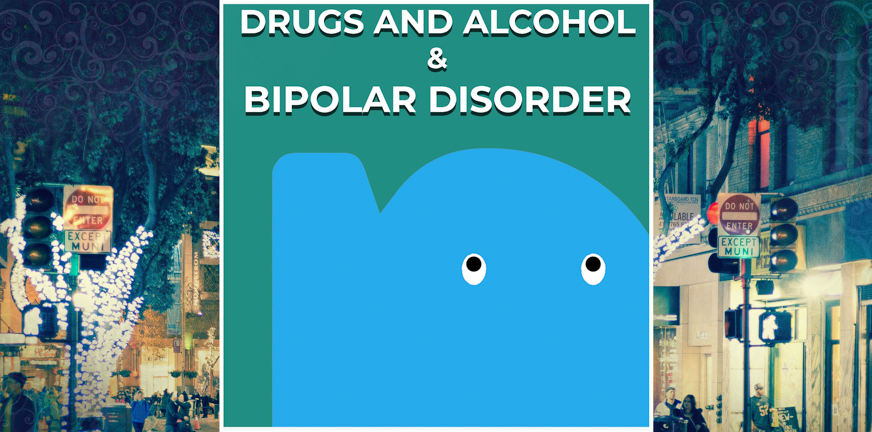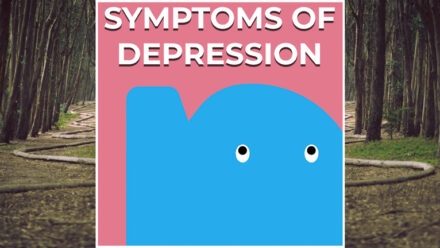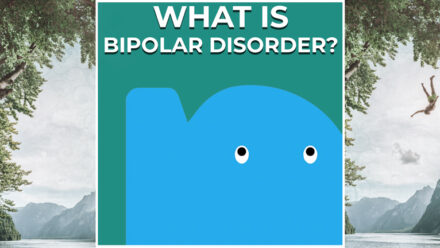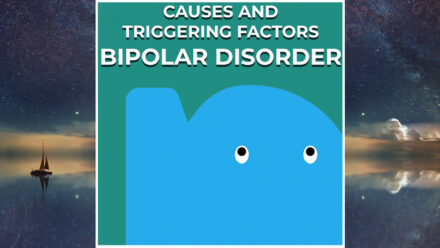
A lot of people with bipolar disorder struggle with addiction to (or abuse of) drugs and/or alcohol at some time in their life. This has a negative effect on mood swings and recovery in general.
Alcohol and drug abuse and/or dependence combined with bipolar mood disorder is often a problem. Both for patients and therapists. This “double diagnosis” often leads to disappointing treatment outcomes. It regularly happens that there is only room for treating either the addiction issues or the mood issues. Often, patients don’t tell the therapist who is treating their bipolar disorder that they also use cannabis or drink a lot. Or the psychiatrist doesn’t ask. If the dependence and the mood disorder are not treated together, the treatment will be less effective.
How often do these problems occur together?
About fifty percent of people with bipolar disorder have times in their life involving addiction to or abuse of alcohol and/or drugs. So far, most research has focused on alcohol abuse and addiction. This is because it takes six to ten years on average before bipolar disorder is diagnosed. By that time, most people already stopped using drugs (cannabis, cocaine, MDMA, amphetamines) and are now only using alcohol. Often, a lot of damage has already been done by then.
Why do bipolar disorder and addiction often go together?
There are a number of assumptions about why these disorders often go hand in hand. There are indications that people use drugs or alcohol to influence their mood positively or to ease the side effects of their medication. Someone can easily get addicted this way. Also remarkable is that many people get addicted first, and only afterwards begin to show signs of bipolar disorder. There are other assumptions about the exact relation, but so far none of them have been proven.
What are the consequences of substance use?
More and more studies show that excessive use of substances is associated with stronger symptoms of bipolar disorder. Earlier start of the bipolar illness. Shorter times between episodes. More persisting symptoms during episodes. Longer time to recovery and shorter time before relapse. More episodes, more different symptoms, and more depressive symptoms. Higher incidence of ‘rapid cycling’ (four or more episodes a year), more episodes of the mixed or depressive type and episodes that start sooner and last longer. Besides this, there is two to three times higher risk of suicide among heavy users of substances.
In 2001, the World Health Organization (WHO) has compiled a top 20 of ‘Years Lived with Disability’ (YLDs). These are the years of someone’s life in which that person is not able to work due to health reasons (physical and psychological). Alcohol and bipolar disorder are in fifth and ninth place. For the age group of 15–24 years old, alcohol, bipolar disorders and drug use are in second, fifth and sixteenth place, respectively! The effects of controlled and moderate alcohol consumption on the development of bipolar disorders is much less clear and requires additional research.
Treatment
Treating bipolar disorder combined with alcohol and drug addiction is a complicated and time-consuming process. Treatment for both conditions is essential. Life charting can be a useful tool for both patient and therapist to gain insight into the relationship between (excessive) use of alcohol and/or other substances and the course of your mood. Besides treatment, patients can find a lot of useful support from people with lived experience: visiting an AA meeting (Alcoholics Anonymous) or self-help groups for people with bipolar disorder.
In the treatment of the addiction, motivational interviewing can also be helpful. This kind of interviewing is based on ‘unconditional positive support’ and ‘constructive self-evaluation’. This is valuable, because permanent behaviour change, such as getting rid of an addiction, requires a motivated attitude. Also important is the use of medicines to get rid of the alcohol and drug addiction. If the addiction problem is more prominent than the bipolar disorder, treatment at an addiction clinic (‘rehab’) is the better option. Additionally, there are digital addiction support services as well as many self-help groups with 12-step programmes (Minnesota model).
Conclusion
If someone with bipolar disorder also has drugs or alcohol problems, it is important that both patient and therapist pay attention to this in the treatment. This can have a positive influence on the alcohol and substance use, as well as on the mood swings.
Source: Kenniscentrum Bipolaire Stoornissen Afkickkliniekwijzer (Dutch websites)




